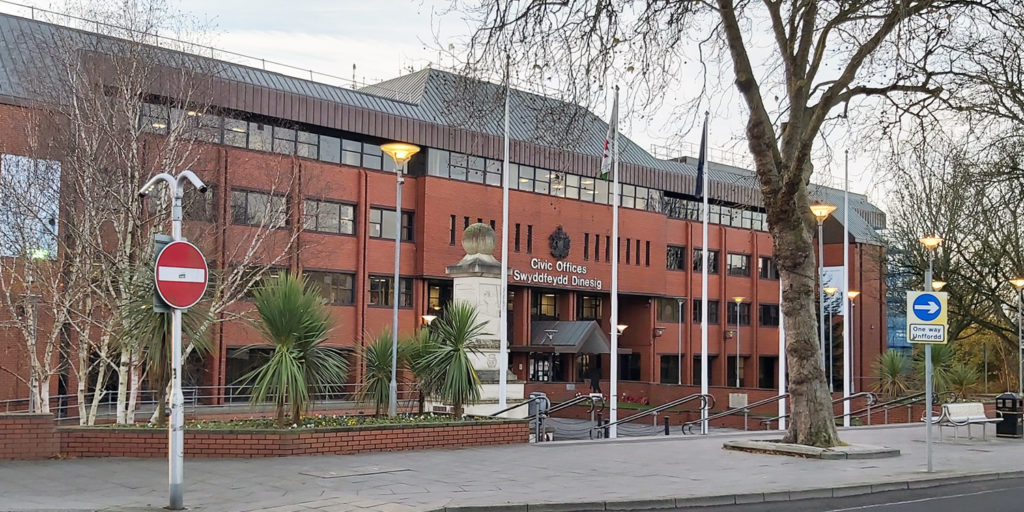Visiting Wales & Tourism Trade
Content:
- Visiting Wales
- Cardiff Airport
- Industries in Wales
- Final Notes From Editors
Visiting Wales
Exploring the Enchanting Beauty of Wales: A Glimpse into the Tourism Trade
Nestled to the west of England, Wales stands as a captivating gem in the United Kingdom’s crown, renowned for its lush landscapes, rich history, and vibrant culture. This enchanting land, with its soaring mountains, pristine coastlines, and charming villages, has become a haven for travelers seeking both natural beauty and cultural immersion. As the tourism industry thrives in Wales, it not only brings economic prosperity but also introduces the world to the unique tapestry of this remarkable nation.
A Tapestry of Landscapes: Wales boasts an astonishing diversity of landscapes, all within a relatively small geographic area. From the towering peaks of Snowdonia National Park to the serene lakes of Brecon Beacons, the rugged beauty of Pembrokeshire Coast to the rolling hills of the Welsh Marches, the country’s landscapes are a playground for outdoor enthusiasts. Hikers, climbers, cyclists, and nature lovers are drawn to the breathtaking vistas and opportunities for adventure that Wales offers.
Historical and Cultural Treasures: History buffs are in for a treat in Wales, a land steeped in tales of ancient kings, knights, and mythological legends. Castles, a testament to the nation’s past, are scattered across the landscape. Caernarfon, Conwy, and Cardiff castles stand as majestic examples of architectural marvels that narrate the country’s history. The historic mining town of Blaenavon and the industrial landscape of the Big Pit National Coal Museum provide a glimpse into Wales’ industrial heritage.
Cultural festivals and events: The Eisteddfod, a celebration of Welsh language, literature, music, and performance, gathers artists and enthusiasts from all corners of the country. The Hay Festival, a global literature event, showcases the nation’s literary prowess. These gatherings not only celebrate Wales’ cultural richness but also draw visitors who seek to be part of these unique experiences.
Coastal Charms: With a coastline that stretches for over 870 miles, Wales offers a treasure trove of coastal experiences. From the serene beaches of Anglesey to the dramatic cliffs of the Gower Peninsula, the Welsh coastline is a haven for relaxation and exploration. Coastal towns like Tenby and Aberystwyth exude a quaint charm, offering fresh seafood, water sports, and the simple pleasure of a seafront stroll.
Boosting the Tourism Trade: Tourism plays a pivotal role in Wales’ economy, contributing significantly to job creation and revenue generation. The Welsh Government, local authorities, and private enterprises collaborate to enhance the tourism trade sustainably. Investments in infrastructure, accommodation, and promotion have propelled Wales onto the global tourism stage.
Sustainable Tourism: As the tourism industry flourishes, Wales is also committed to preserving its natural beauty and cultural heritage through sustainable practices. Initiatives to reduce carbon footprints, promote responsible travel, and preserve wildlife habitats are integral to the country’s tourism strategy. Eco-friendly accommodations, farm stays, and guided tours that focus on education and conservation contribute to a holistic and ethical tourism experience.
Challenges and Opportunities: While Wales’ tourism industry thrives, it faces challenges similar to those encountered worldwide. Balancing the influx of visitors with environmental conservation, minimizing the impact on local communities, and adapting to changing travel trends are ongoing concerns. The integration of technology, such as smart tourism initiatives and digital platforms for visitor engagement, offers opportunities to address these challenges effectively.
Wales, with its diverse landscapes, rich history, and vibrant culture, stands as a beacon in the world of tourism. The nation’s commitment to sustainable practices ensures that its allure remains undiminished for generations to come. As travelers explore its castles, hike its mountains, and breathe in its coastal air, Wales weaves a tapestry of experiences that leave an indelible mark on the hearts of those who visit.
Cardiff Airport: Connecting Wales to the World
Cardiff Airport, nestled in the heart of Wales, is a prime example of such a facility. As the largest and busiest airport in Wales, it plays a crucial role in connecting the nation to the global stage while contributing significantly to its economy and development.
A Brief Overview: Cardiff Airport, situated about 12 miles southwest of the capital city, Cardiff, is a vital transportation hub for both domestic and international travel. Formerly known as Rhoose Airport, it underwent a rebranding in 1994 to reflect its prominence as a gateway to Wales. The airport has since grown in stature, providing a diverse range of services and amenities to passengers.
Connecting Wales to the World: One of the primary functions of Cardiff Airport is to provide convenient and efficient air travel options for the people of Wales. The airport offers a wide array of destinations, ranging from European capitals to long-haul flights to international destinations. This connectivity is essential not only for leisure travelers but also for businesses seeking global markets and collaborations.
Economic Impact: The presence of a well-functioning airport can have a profound impact on the local and national economy. Cardiff Airport is no exception. It contributes significantly to job creation, both directly and indirectly, in areas such as aviation, hospitality, retail, and transportation. The influx of tourists, business travelers, and cargo also boosts local businesses, generating revenue for the community.
Enhanced Infrastructure: In recent years, Cardiff Airport has undertaken substantial improvements to its infrastructure and facilities. Modernization efforts include the expansion of the terminal building, the addition of new boarding gates, and enhancements to security and baggage handling systems. These upgrades not only improve the passenger experience but also position the airport as a competitive player in the global aviation industry.
Sustainable Initiatives: As environmental concerns take center stage, airports worldwide are adopting sustainable practices to mitigate their carbon footprint. Cardiff Airport is committed to being an eco-friendly facility. Initiatives like energy-efficient lighting, waste reduction programs, and eco-friendly transportation options contribute to its environmental sustainability goals. This commitment to green practices ensures that growth doesn’t come at the cost of the environment.
Supporting Tourism: Wales is known for its natural beauty, historic sites, and vibrant culture. Cardiff Airport acts as a gateway for tourists seeking to explore the wonders of this nation. The convenience of air travel enhances Wales’ appeal as a tourist destination, bringing in visitors who contribute to local economies through accommodation, dining, and leisure activities.
Challenges and Future Prospects: While Cardiff Airport has achieved remarkable growth and success, it also faces challenges inherent to the aviation industry. Competition from neighboring airports, changing travel trends, and regulatory changes pose ongoing concerns. However, the airport’s strategic location, commitment to passenger experience, and dedication to innovation position it well for future opportunities.
Thriving Industries in Wales: A Tapestry of Economic Success
Wales, a country rich in history, culture, and stunning landscapes, is also home to a diverse range of industries that have been instrumental in driving its economic growth. From traditional sectors that have deep roots in the nation’s history to emerging industries that capitalize on innovation and creativity, Wales presents a dynamic economic landscape that reflects its resilience and adaptability.
Manufacturing Heritage: Manufacturing has long been a cornerstone of Wales’ economy. Historically known for its coal, iron, and steel production during the Industrial Revolution, the country has evolved to embrace modern manufacturing practices. Today, industries like automotive manufacturing, aerospace, and electronics continue to thrive. Major companies such as Aston Martin, Toyota, and Airbus have established their presence in Wales, creating jobs and fostering technological advancements.
Renewable Energy: Wales’ commitment to sustainability has paved the way for significant growth in the renewable energy sector. The country’s natural resources, including wind, hydroelectric, and tidal power, have been harnessed to meet its energy needs and reduce carbon emissions. Wind farms, both onshore and offshore, have become a common sight, contributing to Wales’ goal of becoming a net-zero carbon nation.
Creative Industries: The creative sector has emerged as a vibrant and innovative part of Wales’ economy. From film and television production to digital media, gaming, and design, the creative industries are a testament to the nation’s talent and artistic spirit. The establishment of creative hubs and incubators has nurtured local talent, attracting global attention and contributing to job creation and economic growth.
Tourism and Hospitality: Wales’ breathtaking landscapes, historic sites, and cultural richness make it a desirable destination for travelers. The tourism and hospitality industries have flourished, with visitors seeking to explore castles, hike mountains, and experience traditional Welsh hospitality. The sector supports a wide range of businesses, from hotels and restaurants to tour operators and cultural events.
Life Sciences and Research: Wales has also carved a niche in the field of life sciences and research. With renowned universities and research institutions, the country has attracted investment in biotechnology, pharmaceuticals, and medical research. Collaborations between academia, industry, and healthcare have led to breakthroughs in medical treatments and technologies.
Agriculture and Food Production: Wales’ lush countryside provides fertile ground for agriculture and food production. The country is known for its high-quality meats, dairy products, and artisanal foods. The emphasis on sustainable farming practices and locally sourced ingredients has garnered international attention and bolstered the reputation of Welsh produce.
Challenges and Opportunities: While Wales’ industries thrive, they also face challenges that are common to economies worldwide. Global economic shifts, technological disruption, and the need for sustainability require constant adaptation. Encouraging innovation, investing in workforce development, and fostering a business-friendly environment are essential for maintaining and enhancing the success of these industries.
Government Support and Investment: The Welsh Government plays a pivotal role in supporting and promoting industries across the country. Through strategic investments, funding for research and development, and targeted policies, the government aims to create an environment conducive to growth and innovation. Initiatives that encourage collaboration between industry, academia, and public institutions contribute to the holistic development of various sectors.
Final Notes From Editor(s)
- Wales, with its diverse landscapes, rich history, and vibrant culture, stands as a beacon in the world of tourism. The nation’s commitment to sustainable practices ensures that its allure remains undiminished for generations to come. As travelers explore its castles, hike its mountains, and breathe in its coastal air, Wales weaves a tapestry of experiences that leave an indelible mark on the hearts of those who visit.
- Flying to Wales, Cardiff Airport is more than just a place where planes take off and land; it’s a vital link between Wales and the rest of the world. As it continues to connect people, cultures, and opportunities, its role in Wales’ economic and social development remains pivotal. With its commitment to excellence, sustainability, and innovation, Cardiff Airport is poised to shape the future of air travel in the region while showcasing the best that Wales has to offer to the world.
- The industries in Wales are a reflection of its rich history, cultural vibrancy, and forward-looking approach. From manufacturing to renewable energy, creative arts to research, each sector weaves its thread into the economic fabric of the nation. As Wales continues to adapt to changing global landscapes, its commitment to innovation, sustainability, and collaboration ensures that these industries will continue to thrive, contributing to the country’s growth and prosperity.
#wales #cymru #cymruwales #tourismwales #industrywales #cardiffairport #visitwales #tradewales #businesswales #cymrumarketing #cymrujournal
Contact Us
If you wish us to write similar quality content on any topic, please use the form below to contact us.
ADVERTISEMENT
Domain Names For Sale!
Please contact us to make an offer or acquisition for domain names or make an enquiry about our content writing services.
























